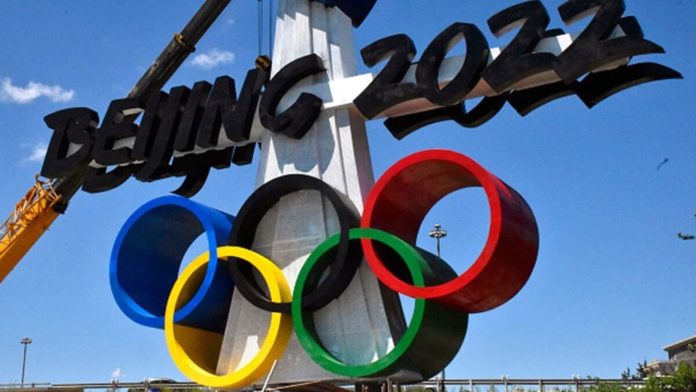Tokyo: Human Rights groups have requested some of the world’s largest broadcasters, including the National Broadcasting Company (NBC), to suspend plans to cover next year’s Winter Olympics in Beijing, which are set to begin on February 4th.
The proposal is made in an open letter signed by rights organizations representing Chinese minorities such as Uyghurs, Tibetans, Hong Kong residents, and others.
“All of your companies are at serious risk of being complicit in China’s plan to ‘sport wash’ the severe and worsening human rights abuses and embolden the actions of the Chinese authorities,” the open letter reads.
“By broadcasting Beijing 2022 your companies will legitimize these abuses and promote what is being widely described as the ‘Genocide Games.'”
The letter comes only just after Tokyo hosted the postponed Summer Olympics and Paralympics, focusing attention on the IOC and its choice of Beijing.
The Associated Press received a copy of the letter, which was sent to NBC Universal CEO Jeff Shell and top foreign television executives on Tuesday.
NBC is spending $7.75 billion for the rights to broadcast the next six Olympics and collaborates directly with the International Olympic Committee in Lausanne, Switzerland.
These payments are expected to make up to 40% of the International Olympic committee’s total revenue.
The IOC has often stated that it is merely a sporting organization, and its president, Thomas Bach, has also refused to comment on or condemn China’s persecution of Uyghurs and other minorities.
In addition, there have been demands for a boycott, pressure on some of the IOC’s 15 biggest sponsors, and some athletes have spoken out about the difficult circumstances they are in.
Meanwhile, China’s foreign ministry has repeatedly criticized what it calls the “politicization of sports” and has said any Olympic boycott is “doomed to failure.”
It has also denied committing genocide against the Uyghur people, describing the charges as the “lie of the century.”
The Beijing Olympics are projected to draw few spectators, and the media will be separated from the athletes, with minimal opportunity for unrestricted movement.
The IOC has turned down many recent requests to relocate the Olympics from Beijing.
Some foreign governments and experts accuse China of subjecting Uyghurs, a predominantly Muslim ethnic group, to forced labor, forced birth control, and torture in Xinjiang, the country’s western region.
Lhadon Tethong, the co-chair of the International Tibet Network, stated that the CBC in Canada, the BBC in the United Kingdom, and ARD in Germany, all of which receive government funding, should not proceed with any broadcast plans.
“It is unconscionable that NBC, CBC and other broadcasters plan to help Chinese leaders project a rosy image of an ‘Olympic Games as usual’ while they are carrying out genocide against the Uyghurs, and engaging in a massive campaign of repression against Tibetans and so many others,” Tethong wrote to Associated Press.
The IOC added human rights standards in the host city contract for the 2024 Paris Olympics several years ago, but such principles were not included in the contract for Beijing— the UN Guiding Principles on Business and Human Rights.
The Paris Olympics are the first to include the requirements, which have been long advocated for by human rights organizations.
After European bidders such as Oslo and Stockholm withdrew for financial or political reasons, the International Olympic Committee chose Beijing to host the 2022 Winter Olympics. While there were just two contenders left for the IOC: Beijing and Almaty, Kazakhstan, Beijing was chosen by a 44-40 margin among IOC members.





















